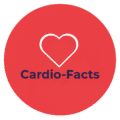Best Blood Pressure Monitors 2025: Omron vs iHealth vs Withings (Comparison Guide)
Introduction Best Blood Pressure Monitors 2025 are essential for anyone who wants to manage their cardiovascular health with confidence. Accurate blood pressure tracking at home can make a real difference in preventing complications and staying in control. In recent years, technology has advanced rapidly, offering smart monitors that connect to apps, provide medical-grade accuracy, and […]
Best Blood Pressure Monitors 2025: Omron vs iHealth vs Withings (Comparison Guide) Read More »
